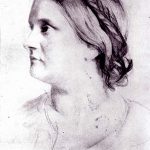 By Becky Shaw, chief executive of East Sussex County Council
By Becky Shaw, chief executive of East Sussex County Council
Today (Thursday, March 8 2018) is International Women’s Day, which this year coincides with the centenary of the Representation of the People Act passing into law.
While it granted the vote only to property-owning women over 30, the Act was a major milestone on the road to universal suffrage for women and the product of the extraordinary efforts of ordinary people over many years.
Among them was Barbara Bodichon, whom East Sussex County Council, in partnership with district and borough councils, successfully nominated as one of the ‘suffrage pioneers’ selected on a list compiled by the Women’s Local Government Society.
I will admit that I had not heard of Barbara before this opportunity to nominate suffrage pioneers came up – she is not as well-known as many other suffragists, but in reading about her life, her impact is clear.
Born in Whatlington, near Battle, she spent much of her early life in Hastings and in 1866 was instrumental in drafting a petition gathering around 1,500 signatures which led to the first parliamentary debate on votes for women, setting in train a series of events that would result in the passing of the Act.
What struck me about Barbara was the range of women’s rights she championed – she published pamphlets highlighting the discrimination women faced in relation to laws on marriage, divorce and property and on the issue of women’s work and education.
She also set up the Society for the Promotion of Employment for Women and raised funds for the first women’s college in Cambridge.
Her dedication to promoting women’s rights was remarkable and she is truly a woman we can all be inspired by. We can continue to follow the lead provided by the women’s suffrage movement in today’s challenging times.
Last year, I gave evidence to the Fawcett Society’s Local Government Commission on female participation and representation across local government.
The findings from the commission are stark and back up my own experiences of working in local government for over 20 years – women are seriously under-represented in decision making and the most senior roles. In fact, fewer than one in five council leaders and only 33 per cent of council chief executives are women. Women are held back by a range of barriers and often face direct sexism.
What is evident is that in the face of significant opposition and multiple setbacks, the suffragists came together and kept going.
East Sussex, and local government more generally, is facing enormous challenges in delivering the services upon which many of our residents depend – budgets have been cut significantly over the last decade and the powers councils exercise are changing.
Women are more likely to rely on the services that councils provide and make up 78 per cent of the workforce, so they should be properly represented in decision-making roles.
We still have a long way to go in East Sussex to improve the representation of women, but I hope the celebrations this year will inspire a new generation of women to get involved.
As part of this, today I am taking part in a mass mentoring event being run by the Local Government Network, in which a group of 15 female local authority chief executives will be mentoring 200 future leaders through small group discussions on leadership, career progression and effective management.
If you are planning an event to mark the centenary of the Representation of the People Act, we’d love to hear about it and to publicise it. Get in touch by emailing Alice.Pippard@eastsussex.gov.uk
There is also funding available to support local and community groups across England to celebrate the centenary and more details are available at www.womensvotecentenaryfund.co.uk
Events happening to mark the centenary
Wednesday, March 14 March 2018 – Sussex Women’s Suffrage Marchers – A talk with author and local historian Frances Stenlake. The Keep – www.thekeep.info/events
Monday, May 21 to Saturday, 2 June 2018 – Exhibition and events exploring and celebrating the 1918 Representation of the People Act – see www.bridgecottageuckfield.co.uk/womens-suffrage-in-sussex/
‘An extraordinary and tireless campaigner’ – the author’s view
 Hastings-based freelance author and historian Ann Kramer featured Barbara Bodichon as one of 30 biographies in her book Sussex Women.
Hastings-based freelance author and historian Ann Kramer featured Barbara Bodichon as one of 30 biographies in her book Sussex Women.
She has written over 50 books on topics ranging from Victorians and suffragists through to human rights and land girls and her new book – Turbulent Spinsters: Women’s fight for the vote in Hastings and St Leonards – was published on Wednesday, March 8 2018 by Circaidy Gregory Press.
How did you choose the women to be featured in your book and what led you to Barbara Bodichon?
My choice was very subjective. The publishers gave me a simple brief: to produce 30 short biographies of ‘Sussex women’. However, women are invisible and I had to do a lot of in-depth research to find the women I wanted to include. Once I started uncovering them, my choices were personal: I chose women who were fascinating to me and whom I hoped would be of interest to my readers.
As a result my final list includes writers, artists, philanthropists, explorers, musicians, cross dressers, one poisoner, a pioneer motorist and of course political activists. I already knew a lot about Barbara Bodichon from studying women’s history and from earlier books that I’ve written on women and politics. In terms of women’s rights she is extremely important but it wasn’t until I was doing my research, which included reading some of local historian Helena Wojtczak’s work, that I realized Barbara Bodichon was local. Naturally she had to be included in my book.
How influential do you think Barbara was in relation to securing women’s suffrage?
I think it’s probably no exaggeration to say that Barbara Leigh Smith, or Bodichon as she is better known, was a key and very influential figure who helped to lay the basis for the early women’s rights movement, sometimes known as ‘first wave’ feminism, and who influenced and helped to shape the early beginnings of an organized women’s suffrage movement.
Many people think that women’s fight for the vote in Britain begins in the early years of the 20th century with the Pankhursts and the suffragettes but it doesn’t. It begins much earlier. In 1865 Barbara Bodichon, with other women, founded the Kensington Society, which increasingly began to focus on achieving the vote.
A year later, she helped to draft a petition to be presented to Parliament, calling for the enfranchisement of all householders, irrespective of sex, which they gave to John Stuart Mill, who presented their case in the House of Commons in 1867. That attempt to include women in the Second Reform Bill going through the House of Commons did not succeed but it was immensely influential and paves the way for a growing demand for votes for women.
As well as fighting for women’s suffrage, Barbara was a pioneer for women’s rights more generally, what else should we remember her for?
There is so much; Barbara Bodichon was such an extraordinary and tireless campaigner for women’s rights. Her first major political campaign was to expose the way in which English law discriminated against women. In 1854 she published an influential pamphlet outlining the laws of England. Used as a lobbying tool, it paved the way for the Married Women’s Property Act of 1882, which meant that married women could own and control property in their own right, rather than that right being held by their husbands.
In 1859 she and some other feminists set up the Society for the Promotion of Employment for Women in Langham Place, London — they were known as the ‘Ladies of Langham Place’ and worked to open up employment opportunities for single women, such as printing and bookkeeping. Like Mary Wollstonecraft before her, she believed that a married woman’s dependence on a husband was demeaning and what women needed was proper training, equal opportunities and well paid work, something that women are still fighting for today more than 150 years later.
As we celebrate the centenary of the 1918 Representation of the People Act, what lessons can we take away from the work of Barbara and the suffragettes more widely?
That is a huge question. Personally I think women’s fight for the vote is inspirational and possibly one of the most significant political campaigns ever. The attacks on suffragists and suffragettes ranged from verbal insults and mocking through to extreme physical brutality, showing that women’s fight for their rights was then and in my opinion still is frequently met with hostility and opposition.
But women were determined and even if they did not always agree on strategies, after a long hard struggle, they won their democratic right. It was only a partial victory in 1918; equal voting rights were not won until 1928. It shows that if women, or people, work together and are determined; they will win their goal but rights are not given, they have to be fought for.
Also, as women we have a responsibility to use our vote: women like Barbara Bodichon and others fought hard, and some died, to win this right. We have a responsibility to use it – and indeed to keep fighting for change. Women in our society are still disadvantaged, we need to keep fighting.


